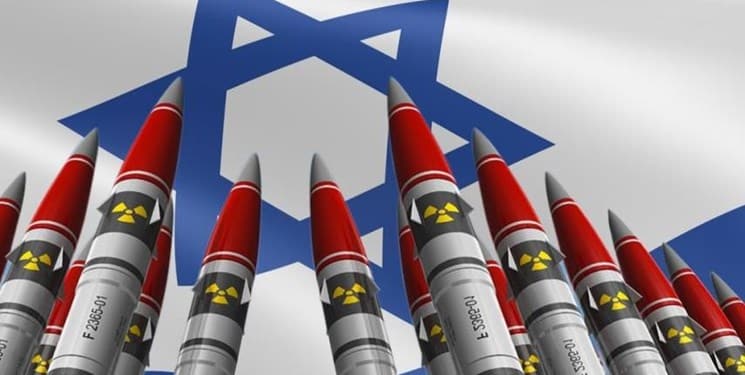Iran warns about the dangers of nuclear weapons in the hands of the Zionist regime.
The ambassador and permanent representative of the Islamic Republic of Iran warned about the dangers of nuclear weapons in the hands of the Zionist regime and demanded the immediate intervention of the Security Council and the International Atomic Energy Agency to address this issue.
“Amir Saeed Irvani”, the ambassador and permanent representative of the Islamic Republic of Iran to the United Nations, on Monday night, November 22, during a speech at the Middle East conference free of nuclear weapons and other weapons of mass destruction, during his speech, he mentioned that the current global perspective on the necessity of creating a Middle East region Free from all weapons of mass destruction, he said: the existence of such weapons, at the regional or global level, is considered a threat to humanity and often serves as a tool for blackmail.
He added: At the international level, there is an urgent need to address the risks related to the possible proliferation of nuclear weapons by the United States and NATO.
Referring to the nuclear weapons of the Zionist regime, Irvani said: At the regional level, the arsenal of weapons in the possession of the Israeli regime has created real and widespread concerns about proliferation. Recent nuclear threats by high-ranking officials of the Israeli regime against Iran and Palestine highlight the danger of these weapons in the hands of such an illegitimate regime.
According to Fars, the Minister of Heritage of the Zionist regime, Amikhai Eliyahu, recently called for the atomic bombardment of Gaza in a television program, statements which caused reactions, and he then retracted his words and retreated from the position he had adopted. Before him, Benjamin Netanyahu, in his speech at the 78th session of the United Nations General Assembly, raised explicit threats regarding the use of nuclear weapons against Iran. In this regard, not long ago, Amir Saeed Irvani, in a letter to the Security Council about the nuclear threat of the Zionist regime, asked the international community to put pressure on it to stop its nuclear weapons program while condemning the reckless and dangerous statements of the officials of this regime.
The ambassador and permanent representative of Iran continued his speech and added: “In light of the recent crimes in the Middle East, we express our immediate concern about Israel’s ambiguous nuclear policy and the potential use of weapons of mass destruction in the conflict in Gaza or elsewhere.” The secrecy of Israel’s nuclear capabilities poses a significant threat to regional stability, and we call for immediate action to address this issue.
* The need to create a Middle East free of weapons of mass destruction
This senior Iranian diplomat stated that in this critical period, the need to create such a region in the Middle East has never been so urgent, and stated: Now, more than ever, creating a Middle East free of weapons of mass destruction is a fundamental step towards a safer future. And it is more reliable.
Irvani noted: We welcome the “Joint Statement of the OIC Member States on the Threat of Using Nuclear Weapons by Israel”, which was approved with the full and valuable support of the OIC member states on November 6, 2023. We suggest that another statement be issued by this conference condemning the nuclear threat posed by the Israeli regime. The purpose of this declaration is to condemn the use or threat of nuclear weapons and emphasize the necessity of transparency, responsible behavior, and commitment to peaceful resolutions in the region.
The ambassador and permanent representative of Iran continued: It is necessary for the international community to accept these threats of the Israeli regime as a clear wake-up call. The actions of the Israeli regime, including examples of terrorism and sabotage against civilian nuclear programs and scientists in the region, require the immediate intervention of international institutions such as the UN Security Council and the International Atomic Energy Agency.
On the other hand, Israel’s unwarranted refusal to participate in this vital conference, bolstered by the unwavering support of the United States, is indefensible, he said. Such reluctance and foreign support prevent vital discussions for global security. Stopping this obstacle and encouraging meaningful participation is essential for the benefit of international stability. Furthermore, any other country that enables Israel’s weapons activities violates international law and contributes to the proliferation of these dangerous weapons.
Stating that on the eve of the fifth year of the conference, it is very important to determine the areas that need more attention, taking into account specific topic discussions, and made suggestions such as that the task of nuclear-weapon-free zones is to ensure the absence of The weapon is in that area, so we emphasize the necessity of real disarmament before establishing nuclear-weapon-free zones.
He added: It is very important to address this issue in creating zones free of nuclear weapons, especially in a region like the Middle East with the real existence of weapons of mass destruction in the region. In furtherance of this goal, other critical aspects and options for verification can be discussed. In this regard, after thematic discussions, this issue should be referred to the working committee for a comprehensive solution, where the technical experts of the International Atomic Energy Agency and the member countries follow up and effectively resolve the existing gaps.
Irvani also said that the use of nuclear, biological, and chemical technologies for peaceful purposes is critical, given past experiences of insufficient compliance by developing countries. The difference between the obligations of developing and developed countries regarding peaceful access to technology requires detailed provisions in the regional treaty. By providing for the facilitation of peaceful access to technology, the treaty should ensure not only the recognition of this right but also specific enforcement mechanisms to defend members’ rights against any obstruction. It is necessary to prevent unilateral coercive measures in the direction of peaceful technology and international cooperation.

